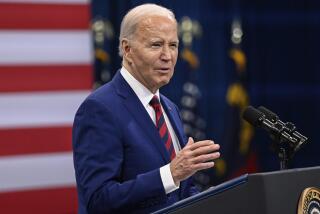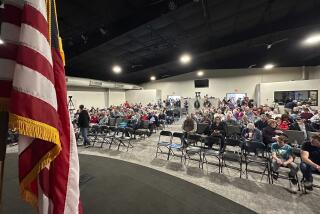Iowa caucuses 2012: How the process works
Iowa voters will kick off the 2012 presidential campaign when they gather Tuesday night at churches, schools, libraries and homes to decide their preferences for the Republican and Democratic presidential nominations.
For Democrats, the process will be simple since President Obama is the party’s de facto nominee.
Republicans, however, will be asked to choose between one of nine candidates. Here’s how the GOP’s Iowa caucus process will work:
Beginning at 8 p.m. Eastern time, caucus-goers will assemble at hundreds of locations across the state. They’ll hear closing arguments from each of the campaigns that has a volunteer on hand to make the pitch. This is where candidates with robust organizations -- like Ron Paul and Mitt Romney -- will have an advantage. It’s unlikely that all nine candidates will be able to field enough volunteers to have a presence at each precinct.
After the closing arguments, registered Republicans will be given a piece of paper, on which they will write the name of one candidate. There is no official ballot. As the Iowa Republican Party puts it: “It is a candidate’s responsibility to convince voters to write their name down on a ballot.”
Voters can write the names of Michele Bachmann, Herman Cain, Newt Gingrich, Jon Huntsman Jr., Ron Paul, Rick Perry, Buddy Roemer, Mitt Romney or Rick Santorum. Or they can write “no preference” or “other.”
Only registered Republicans will be allowed to vote, but anyone who wants to register as a Republican can do so at the caucus location if they supply proper identification and will be at least 18 years old on election day.
Once the ballots have been cast, they’ll be tallied and the results will be announced to the caucus-goers. At that point, most people will leave while the diehards will stay to help conduct official party business.
Part of that official business will be choosing delegates to represent the precinct at the GOP’s county conventions, which will be held in March. It is at those conventions that delegates will be chosen for the state convention, where, in June, the party will decide how to apportion its 28 delegates for the national party’s nominating convention.
That means that while much will be made of the presidential balloting tonight, the results won’t technically produce guaranteed delegates for any of the candidates. Still, the results are likely to narrow the field.
kim.geiger@latimes.com
More to Read
Get the L.A. Times Politics newsletter
Deeply reported insights into legislation, politics and policy from Sacramento, Washington and beyond. In your inbox three times per week.
You may occasionally receive promotional content from the Los Angeles Times.






